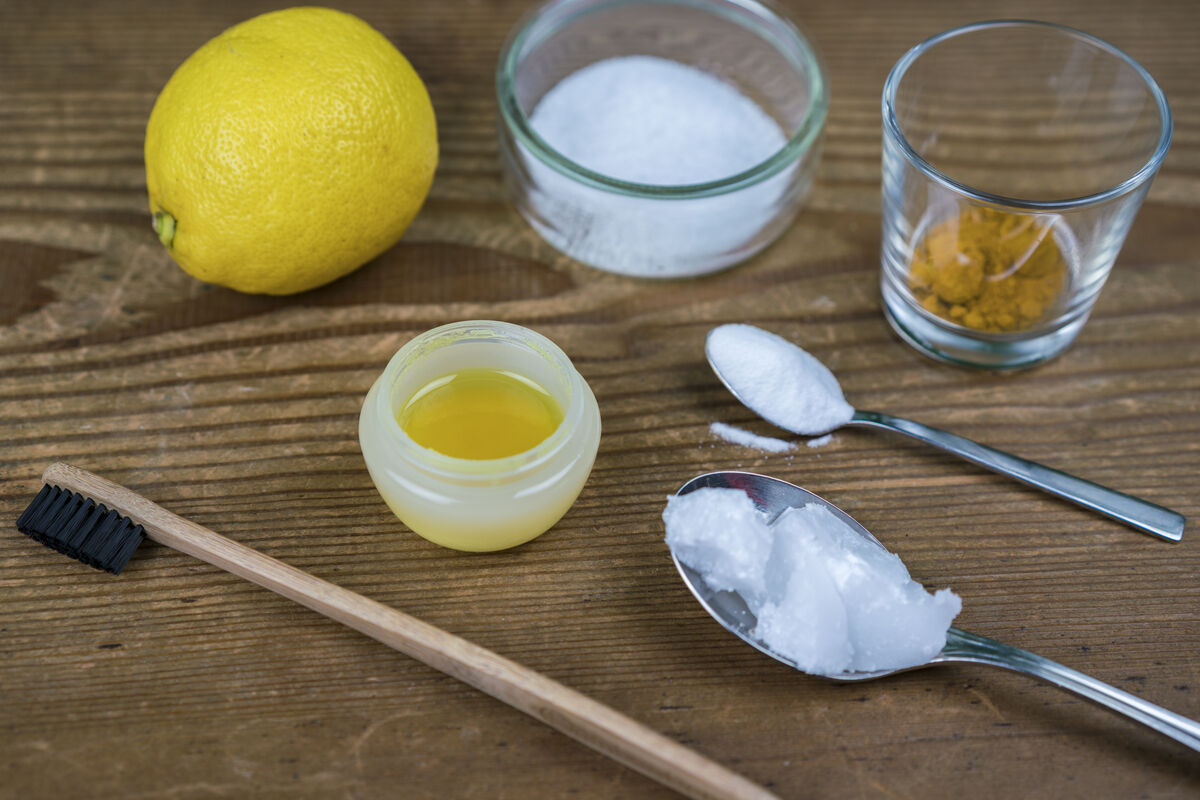Contents

Making Your Own Natural and Organic Toothpaste: A How-To Guide
Do you want to take care of your teeth naturally while reducing your environmental impact? Making your own toothpaste is an easy, economical, and eco-friendly alternative that's gaining popularity. This guide provides simple recipes and tips for creating a healthy and effective homemade toothpaste.
Why Consider Homemade Toothpaste?
Many commercial toothpastes contain ingredients that some people prefer to avoid, such as Sodium Lauryl Sulfate (SLS), artificial sweeteners, dyes, and preservatives. By making your own toothpaste, you have complete control over the ingredients, ensuring you are using only simple, natural components. It's a great way to maintain your oral health while avoiding unnecessary chemicals.
The Fluoride Factor
A major drawback of most homemade toothpastes is the lack of fluoride, an ingredient the American Dental Association (ADA) recognizes as crucial for preventing cavities. It's important to discuss using a fluoride-free routine with your dentist.
The Benefits of DIY Toothpaste
In addition to ingredient control, making your own toothpaste offers several advantages:
- Cost-Effective: The raw ingredients are inexpensive and last a long time.
- Eco-Friendly: It significantly reduces packaging waste.
- Customizable: You can adapt recipes to your specific needs, such as adding ingredients for sensitivity or whitening.
Essential Ingredients for a Natural Toothpaste
A basic homemade toothpaste typically includes a base, a mild abrasive, and a flavoring agent.
- Base: Coconut oil is a popular choice for its antibacterial properties and pleasant texture.
- Mild Abrasive: Baking soda is effective at removing surface stains, but must be used in moderation. Bentonite clay is another option that helps to clean and remineralize.
- Flavor and Antibacterial Boost: Food-grade essential oils like peppermint, spearmint, or clove add flavor and have natural antimicrobial properties.
Our Best Homemade Toothpaste Recipes
Making your own toothpaste is simple. Here are three easy, natural recipes to get you started.
1. Simple Remineralizing Clay Toothpaste
Ingredients:
- 3 tbsp bentonite clay
- 2-3 tbsp boiling water
- 1/4 tsp salt
- 8 drops peppermint essential oil
Preparation: In a non-metal bowl, mix the clay and salt. Slowly add the boiling water and stir with a non-metal utensil until a smooth paste forms. Add the essential oil and mix again. Transfer to a clean, airtight glass jar.
2. Gentle Whitening Toothpaste with Coconut Oil
Ingredients:
- 2 tbsp coconut oil (solid)
- 1 tbsp baking soda
- 10-15 drops of spearmint or orange essential oil
Preparation: In a small bowl, mash the coconut oil with a fork. Add the baking soda and essential oil. Mix thoroughly until a smooth paste is formed and transfer to an airtight jar.
3. Intense Freshness Mint Toothpaste
Ingredients:
- 2 tbsp coconut oil
- 1 tbsp baking soda
- 1/4 tsp stevia or xylitol (for sweetness, optional)
- 20 drops peppermint essential oil
Preparation: Combine all ingredients in a bowl and mix well. Store in an airtight container.
Important Precautions and Tips for Success
Even natural ingredients require careful handling:
- Use a Clean Spoon: To avoid introducing bacteria into your toothpaste, use a clean spoon or spatula to apply it to your toothbrush, rather than dipping your brush directly into the jar.
- Be Mindful of Abrasives: Ingredients like baking soda and charcoal can be abrasive. If you have sensitive teeth or concerns about enamel wear, use them sparingly or omit them.
- Prepare Small Batches: Since homemade toothpastes lack preservatives, they have a shorter shelf life. It's best to make small quantities that you will use within a few weeks.
Conclusion: A Natural Step Forward
Making your own toothpaste can be a rewarding, healthy, and eco-friendly choice. It allows you to take control of your oral care products and avoid unwanted chemicals. However, it's crucial to discuss your oral hygiene routine with your dentist, especially regarding the use of fluoride, to ensure you are doing what's best for your long-term dental health.
FAQ: Your Top Questions About Homemade Toothpaste
This depends on the ingredients. Recipes containing water will have a shorter shelf life (about a week). Oil-based recipes can last for several months. Store your toothpaste in an airtight container in a cool, dark place.
It can be, but it's crucial to use child-safe ingredients. Avoid most essential oils for very young children. Most importantly, since homemade recipes lack fluoride, they do not provide the same level of cavity protection as ADA-Accepted children's toothpastes. Always consult your pediatric dentist first.
Homemade toothpaste can be effective at cleaning teeth and removing plaque. However, the biggest difference is the absence of fluoride, which is the most effective ingredient for preventing tooth decay. If you choose to go fluoride-free, it's essential to be extra diligent with your oral hygiene and diet.
